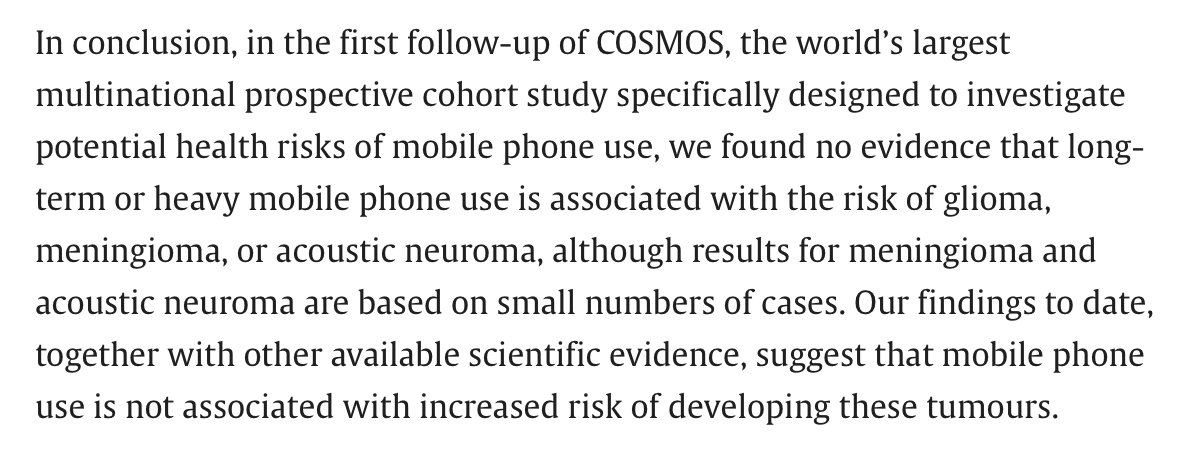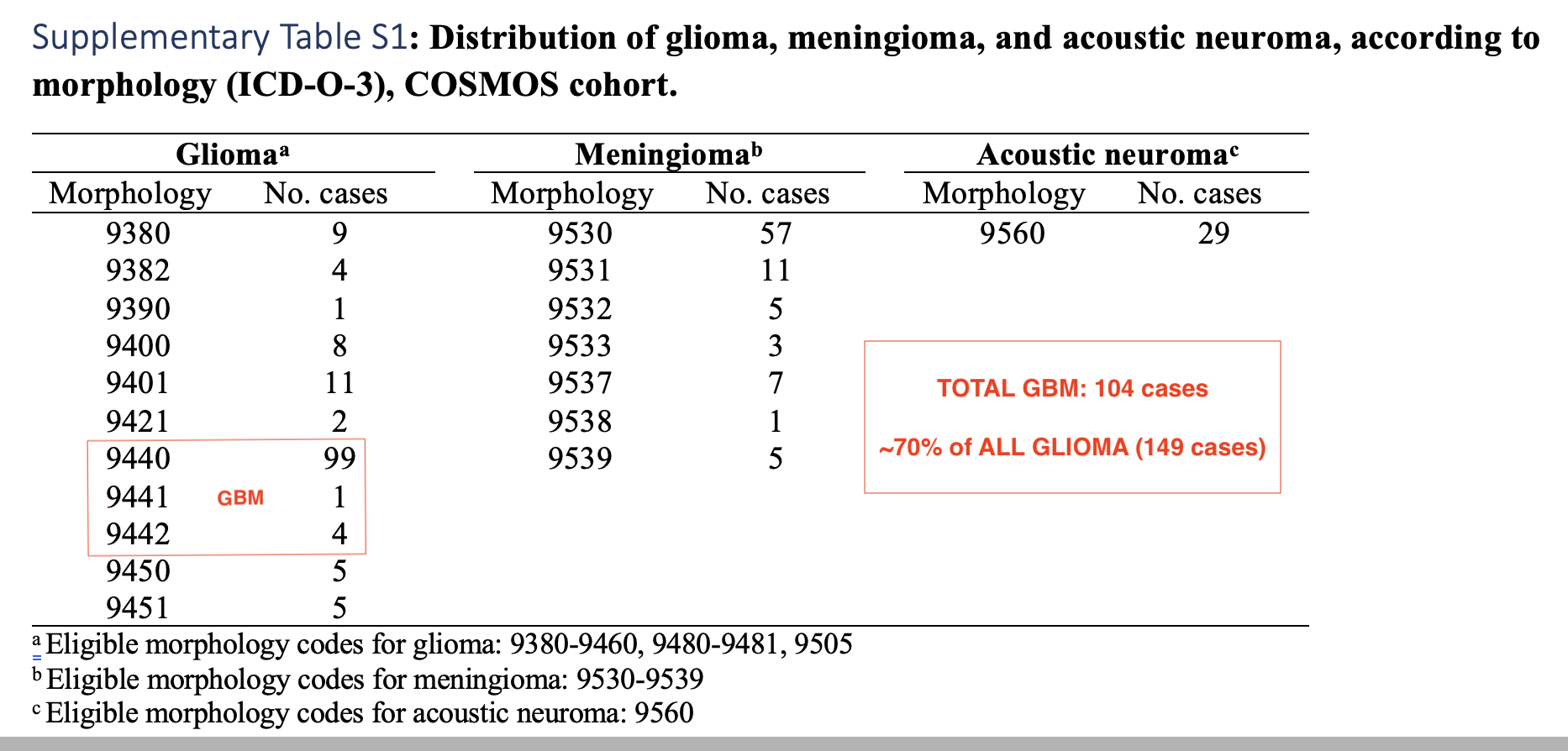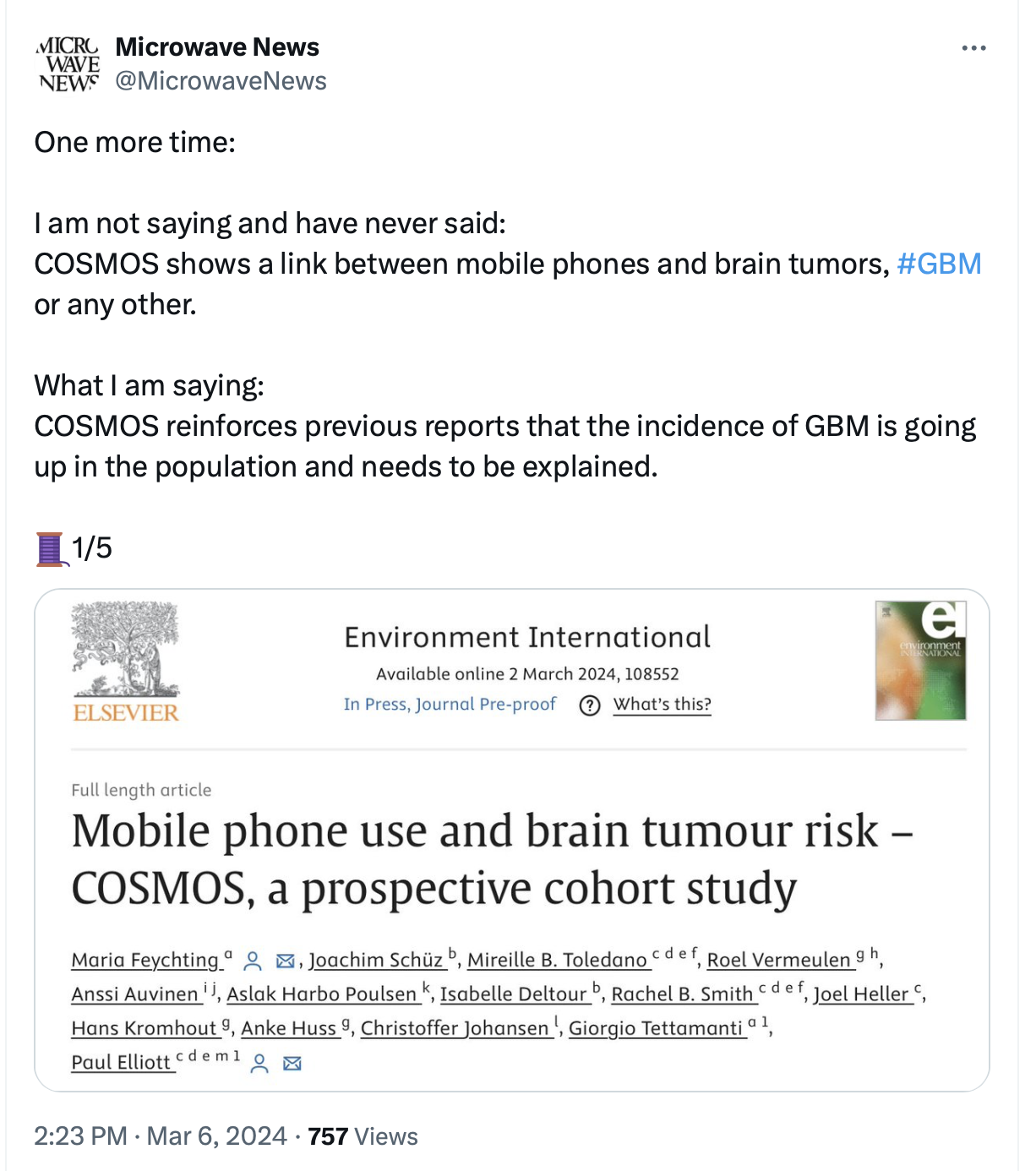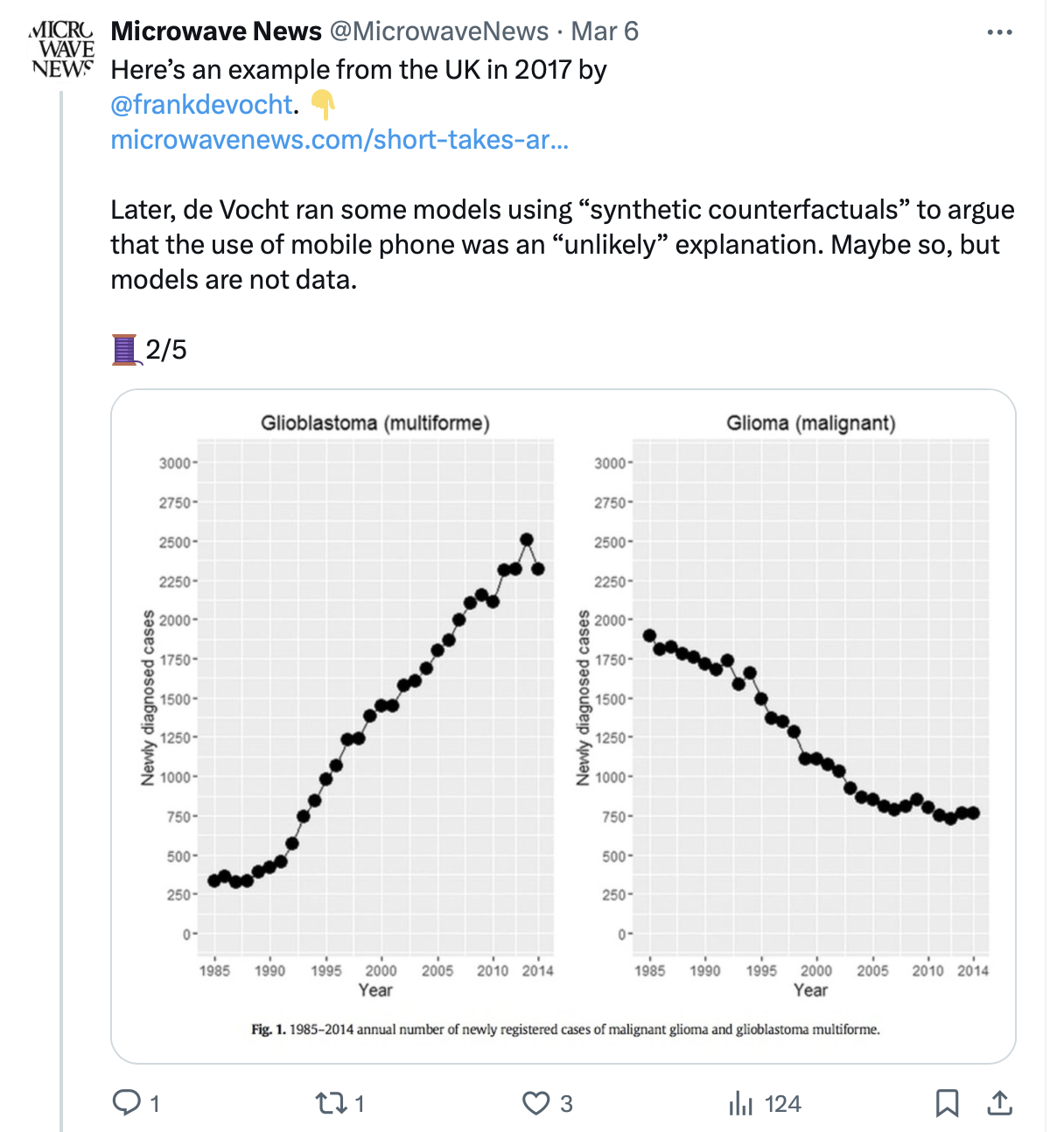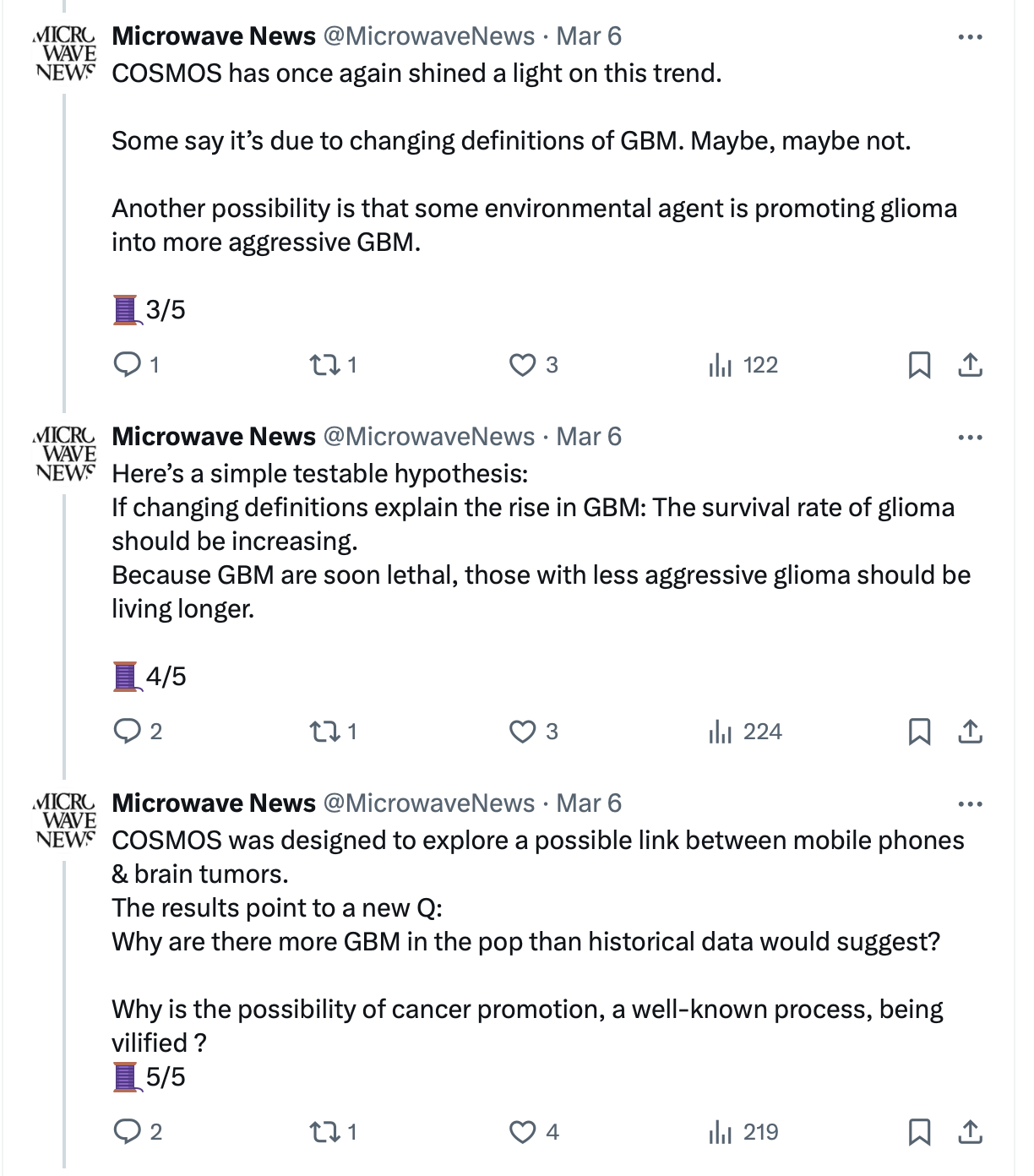COSMOS: Prospective Cohort Study: Mobile Phone Use and Brain Tumur Risk
March 3, 2024
“Our findings suggest that the cumulative amount of mobile phone use is not associated with the risk of developing glioma, meningioma or acoustic neuroma.”
From Denmark, Finland, the Netherlands, Sweden and the U.K. (but not France). Team includes Maria Feychting, Joachim Schüz, Anssi Auvinen, Anke Huss, Christoffer Johansen and Paul Elliott.
The COSMOS paper does not mention the different types of glioma, notably glioblastoma (GBM), the most aggressive type of brain tumors.
Yet, Supplementary Table S1 shows ~70% of gliomas in the COSMOS study population are GBM, which is higher than the expected ~50%. Note also that, according to Table S2, 64% of COSMOS pop is female. Men are much more likely to get GBM than women. So the percentage of GBM in the COSMOS cohort is even higher than expected.
None of this is discussed!
This elevated rate of GBM in the COSMOS cohort is important because it supports past unexplained findings of higher incidences of GBM in Denmark, England, the Netherlands & Sweden —all part of COSMOS.
IARC news release.
Karolinska release.
Microwave News on X/Twitter:
April 25, 2024
Michael Kundi, an emeritus professor at the Medical University of Vienna, has published a letter to the editor in Environment International challenging the conclusions of the COSMOS team. (It's open access.)
He concludes:
“Hence we must conclude that COSMOS not only cannot find a risk for developing brain tumors but can also not find an effect on tumor growth since a reasonable shift of the age-incidence function leads to too small hazard ratios to become significant after such a short follow up.”
Maria Feychting and her COSMOS colleagues respond with what they call an endorsement of their conclusions. Their letter is also open access.
Kundi lists three possible effects of the use of mobile phones, including “exposure may lead to higher malignancy of the tumor.” Feychting’s letter does not address this possibility.

